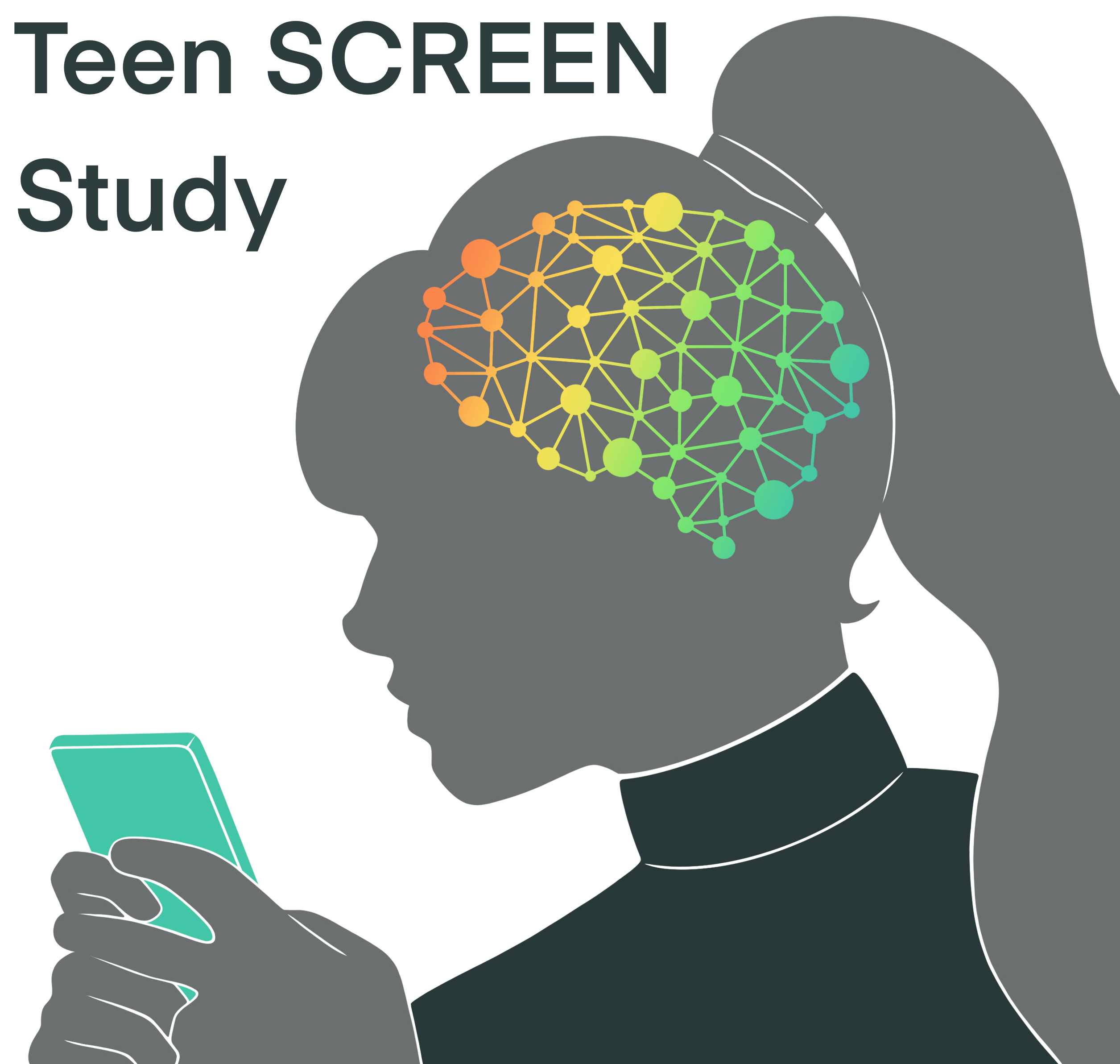 Teen SCREEN Research Study – Parents of Girls Ages 12-17
Teen SCREEN Research Study – Parents of Girls Ages 12-17
STUDY BASICS
Are you the parent of a 12-17 year old girl? Does your child have their own smartphone? Your child may be able to participate in a study to better understand how adolescents’ social media experiences, other social interactions, and the brain influence emotional health. This study involves completing questionnaires, an in-person lab visit, at-home assessments, and fMRI scanning.
IRB: STUDY21030203C
- Teen Screen Time, Emotional Experiences and Neuroscience StudyMEET THE RESEARCHERS

Jennifer Silk
Jennifer Silk is a Professor of Psychology and Psychiatry at the University of Pittsburgh. Her research focuses on the development and treatment of affective disorders in adolescence, such as anxiety, depression, and suicidality. Her research focuses on the interplay between youths’ social environments and underlying neurobiological vulnerabilities. She has published more than 150 articles and chapters on these topics and has led 9 NIH-funded grants. Dr. Silk was elected as a Fellow of the Association for Psychological Science and earned a Young investigator Award from the Brain and Behavior Research Foundation, a National Postdoctoral Association Mentor of the Year Award, and was recognized at the White House as a winner of the National Behavioral Health Patient Empowerment Challenge. She has been a faculty member at the University of Pittsburgh for 25 years.
.jpg)
Cecile Ladouceur
Cecile D. Ladouceur, PhD, is an Associate Professor of Psychiatry and Psychology at the University of Pittsburgh. A graduate of the University of Québec in Montreal, Dr. Ladouceur’s research interests include neurodevelopment of emotion regulation, puberty and adolescent brain development, and sex differences in risk for anxiety/mood disorders.
 https://pittplusme.org/study/2213
https://pittplusme.org/study/2213
